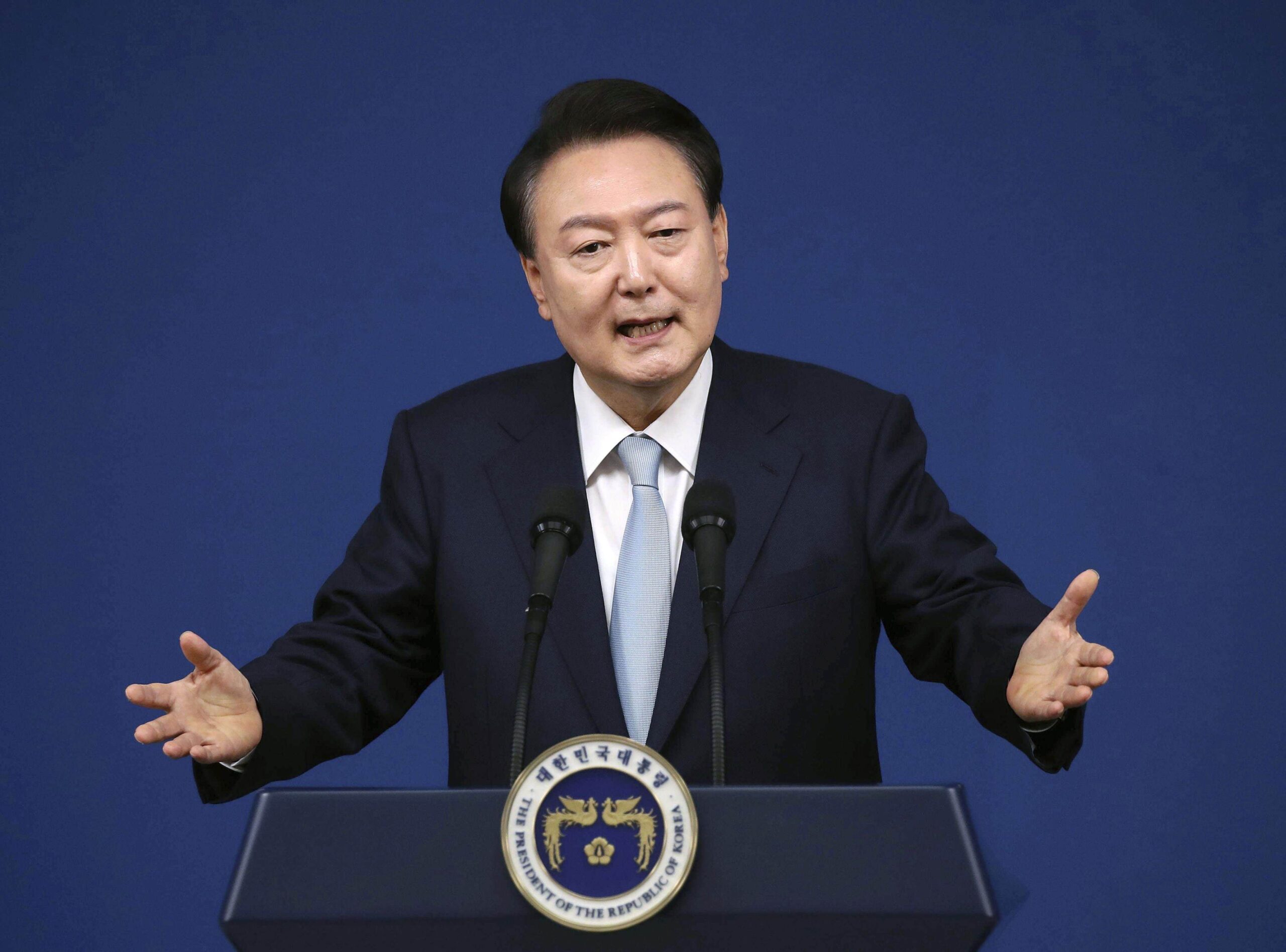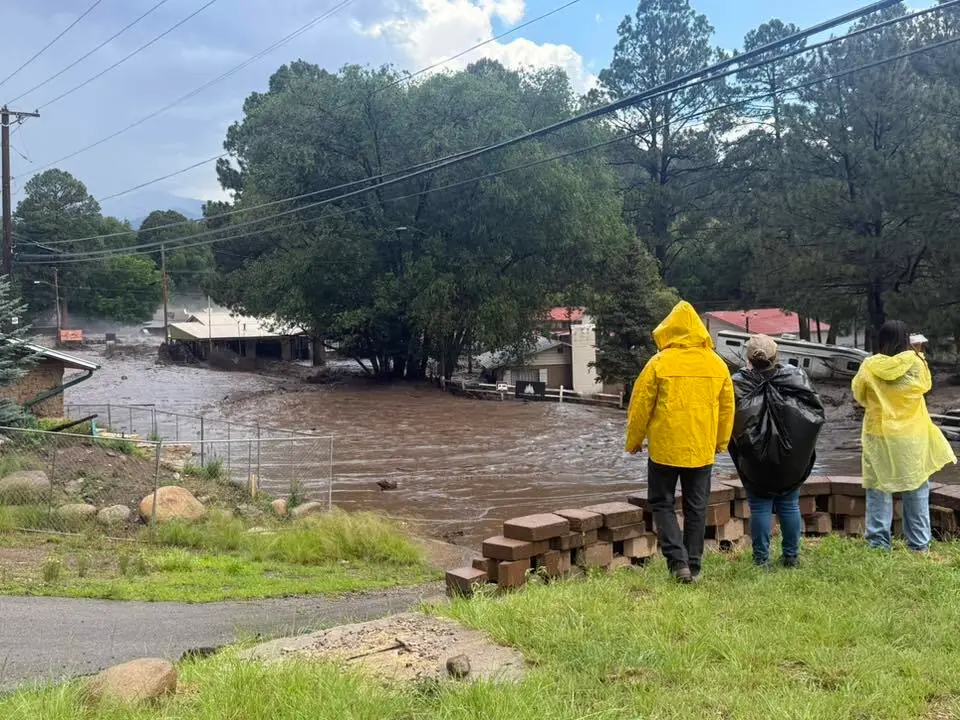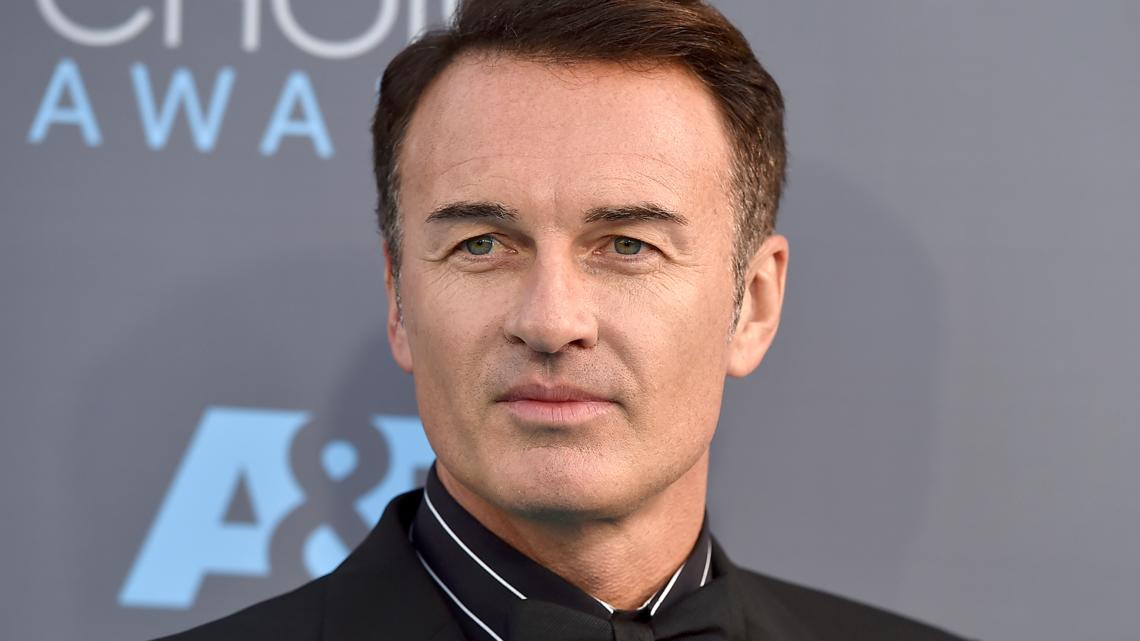South Korean President Yoon Suk Yeol declared martial law in a surprise late-night address, accusing the opposition Democratic Party of engaging in anti-state activities and sympathizing with North Korea. The announcement, delivered on Tuesday, has heightened political tensions and drawn widespread criticism from opposition leaders and international observers.
In his televised address, Yoon accused the Democratic Party, which holds a parliamentary majority, of inciting rebellion by attempting to impeach top prosecutors and blocking the government’s budget proposal. “These actions constitute clear anti-state behavior,” he stated, labeling the opposition’s actions as efforts to paralyze state affairs and disrupt governance.
The president also accused the opposition of creating a “drug haven” in South Korea and fostering a state of disorder that jeopardizes public safety. “The National Assembly has become a monster undermining liberal democracy, and the nation is in a precarious state, teetering on the edge of collapse,” he claimed.
Yoon justified martial law as a necessary measure to protect the freedoms and safety of the people while ensuring national stability for future generations. He pledged to eradicate what he described as “shameless pro-North anti-state forces.” While acknowledging that martial law could inconvenience the public, Yoon promised efforts to minimize its impact.
The move has prompted immediate political repercussions. Local reports indicate that the parliament speaker is attempting to convene a session, but lawmakers are reportedly being blocked from entering the building. Opposition leader Lee Jae-myung called the declaration an “unconstitutional power grab” and vowed to challenge it through legal and political means.
The decision has also sparked protests in Seoul and other major cities, with demonstrators condemning the declaration as a threat to democracy. Human rights organizations have raised concerns about potential abuses, citing South Korea’s history of using martial law to suppress dissent. International observers, including the United Nations and the European Union, have urged South Korea to uphold democratic principles and ensure proportionality in addressing security threats.
Political analysts are divided over the motivations behind the declaration. Some view it as a strategic move to consolidate power amidst declining approval ratings for Yoon’s administration, while others argue it reflects legitimate concerns over national security. Professor Kim Ji-won of Yonsei University noted that the move mirrors authoritarian tactics used during South Korea’s pre-democratic era, warning of its potential to undermine democratic institutions.
South Korea has a complex history with martial law, with notable instances including its use during the April Revolution in 1960, the Gwangju Uprising in 1980, and the military-led coup of 1961. The latest declaration marks the first such measure in South Korea’s democratic era, amplifying its significance in the nation’s political trajectory.
The long-term implications of the declaration remain uncertain. Legal challenges are anticipated as opposition lawmakers prepare to contest the decision in court. Public opinion appears deeply polarized, with some supporting the government’s emphasis on security and others demanding a swift return to democratic norms. For now, South Korea faces a critical test of its democratic resilience amid escalating political and social unrest.





